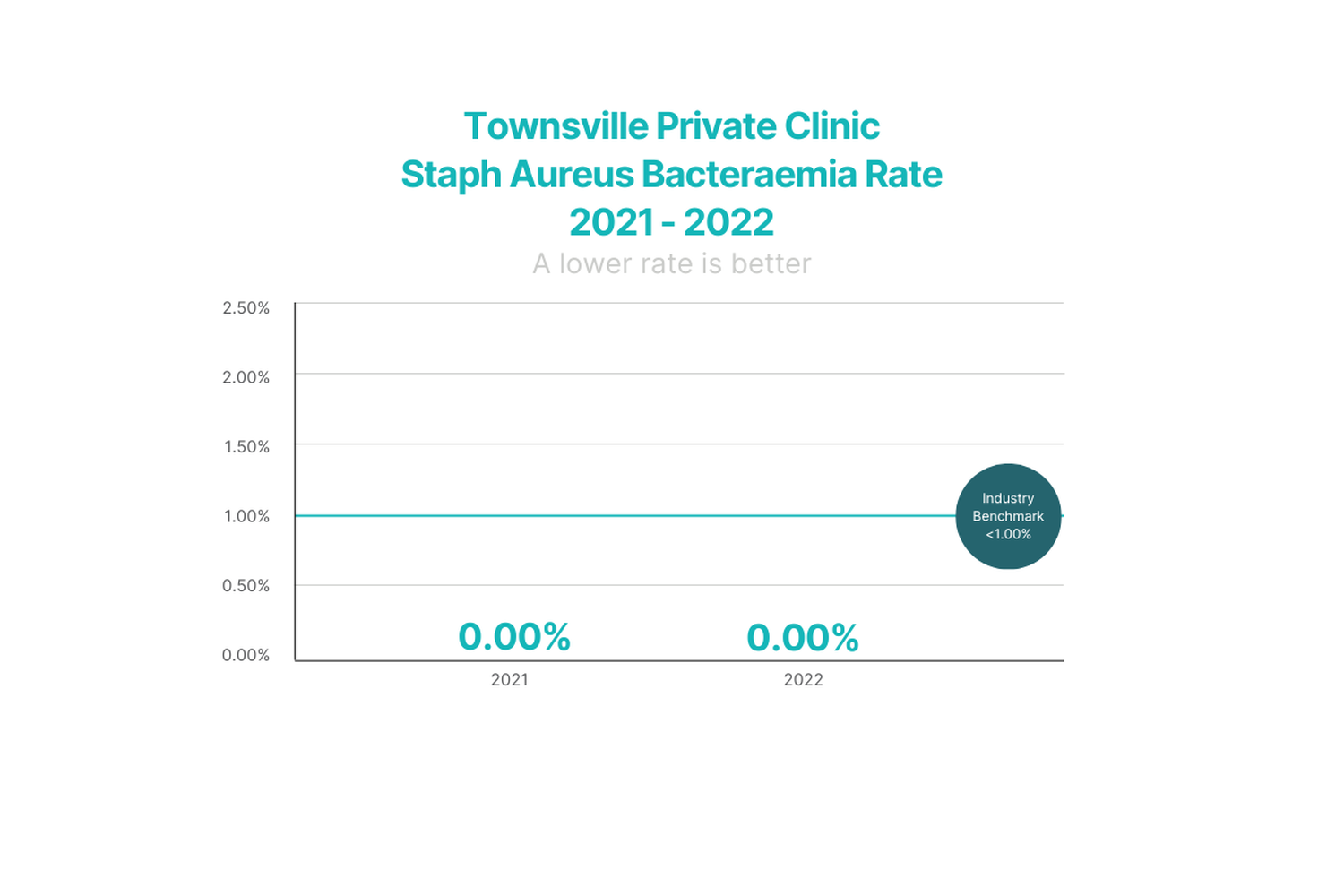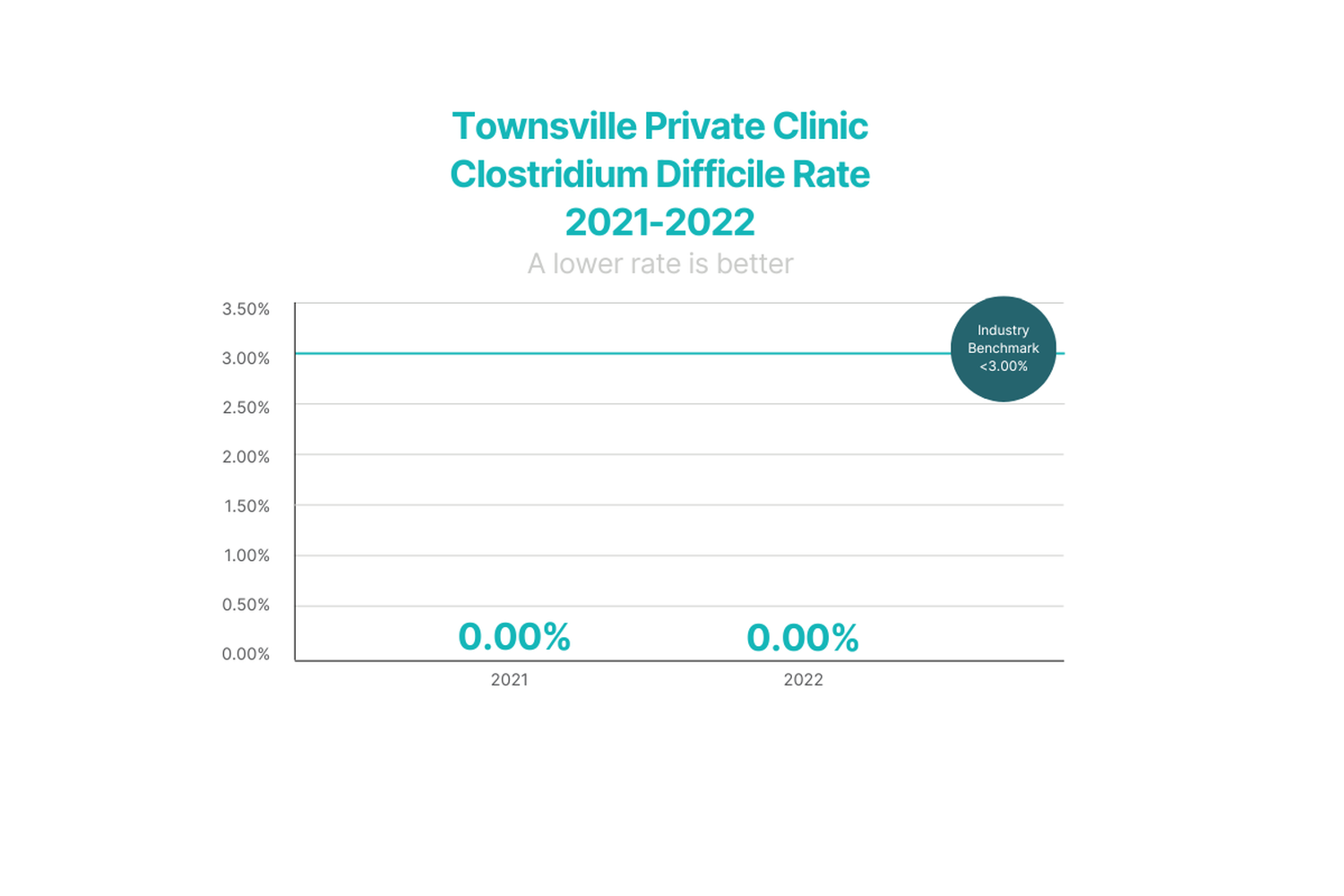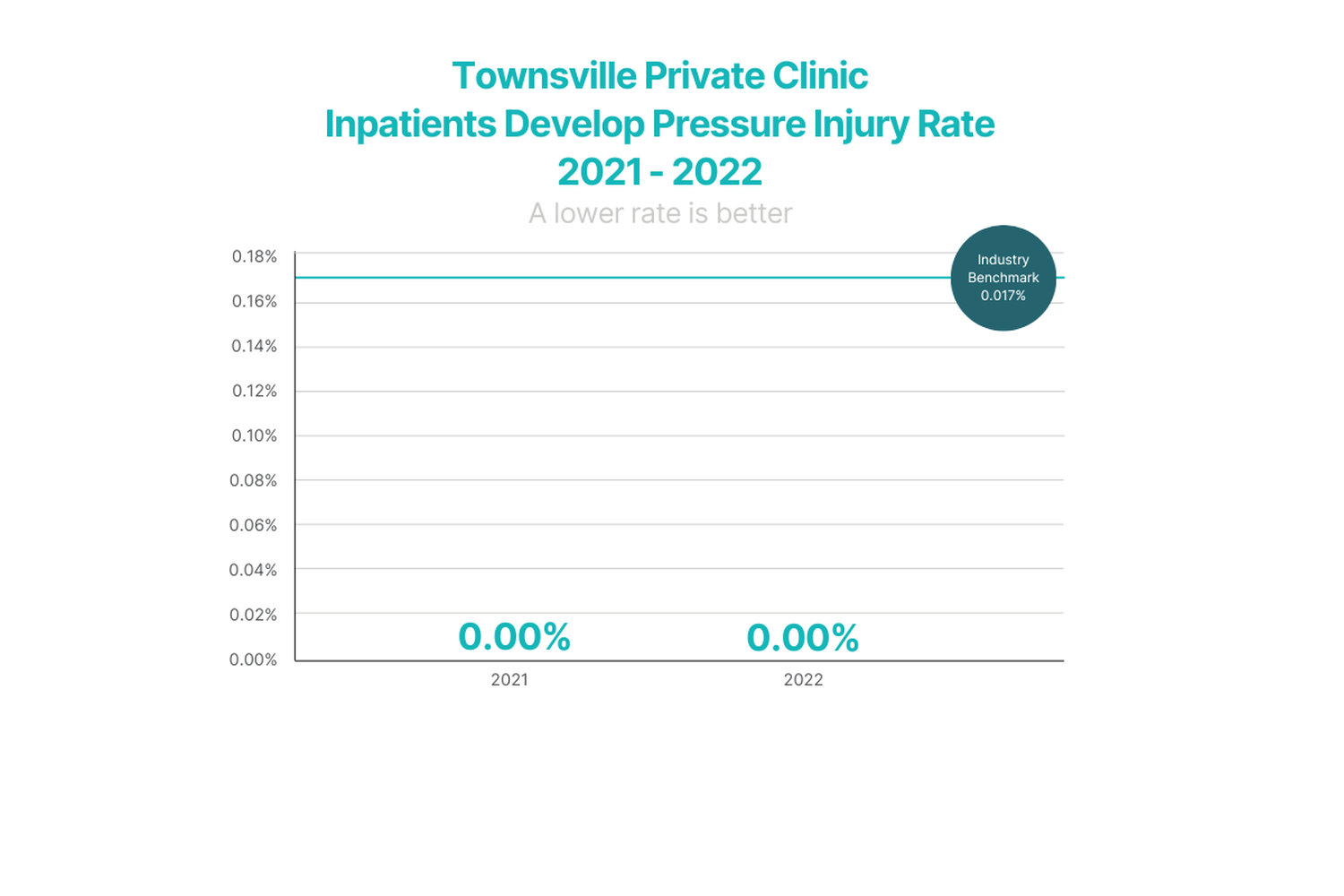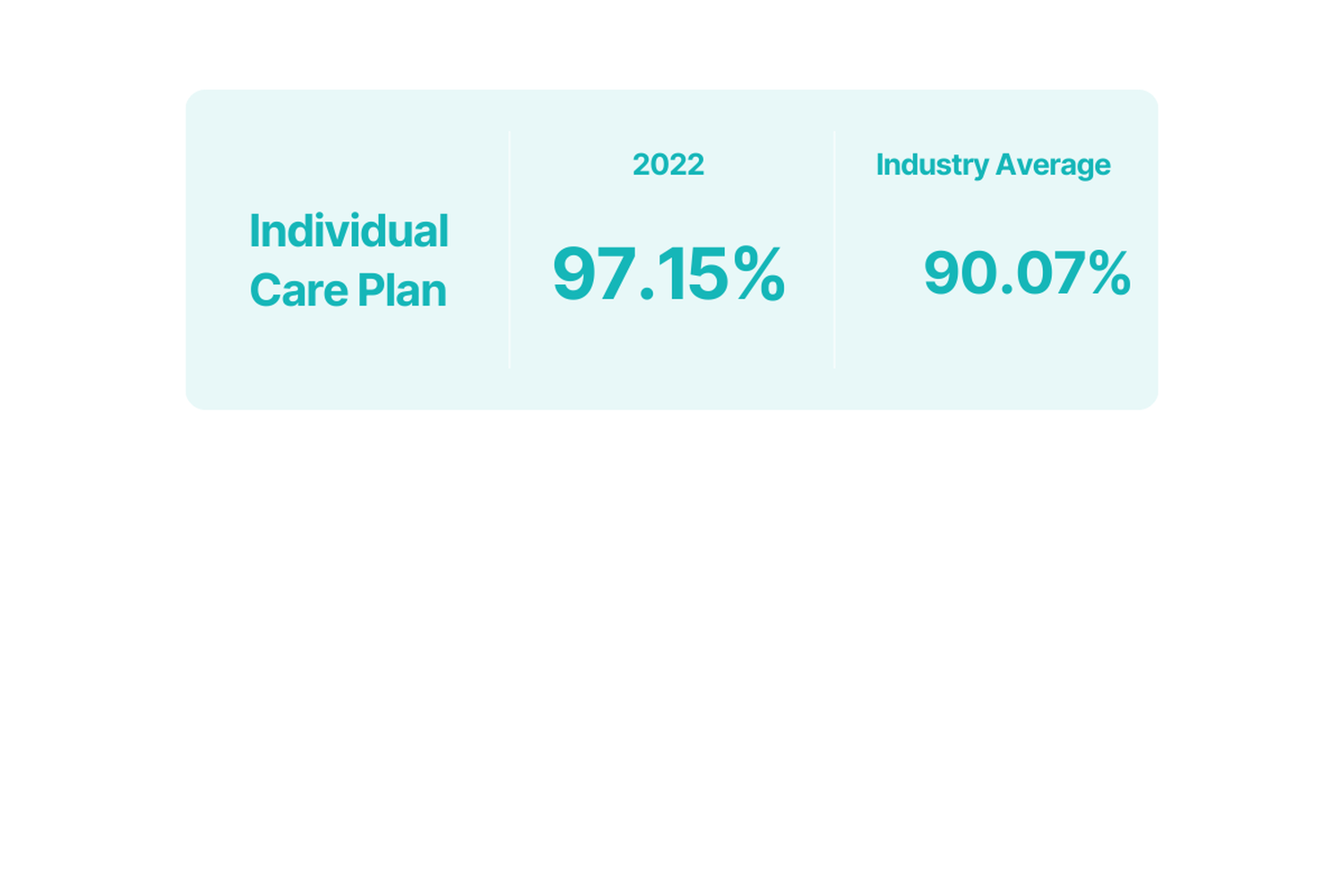Patient Outcomes
As part of our quality framework, we regularly measure and benchmark ourselves against a range of 'Clinical Indicators'.
Infection Rate (Staph Aureus Bacteraemia or SAB)
Townsville Private Clinic's Infection Rates
Germs can cause an infection known as staphylococcus aureus bacteraemia (SAB) which needs antibiotic treatment if it enters the blood. Some serious strains are resistant to antibiotics.
To reduce the risk of hospital acquired infections, we use best practice infection prevention and control with a focus on hand washing as this is the most effective way to stop germs spreading or entering the blood.
We provide continual education and training to all our caregivers to ensure we keep our infection rate well below the national target.
The graph below shows the number of patients that developed a hospital acquired Staphylococcus Aureus Bacteraemia (SAB) infection. Townsville Private Clinic's rate is lower (better) than the industry benchmark. Townsville Private Clinic has a number of risk mitigation strategies in place to reduce the risk of transmission of Health Care Associated Infections.
The most valuable prevention is for everyone to wash their hands, patients, visitors and health professionals alike.

Clostridium Difficile (C Diff)
Townsville Private Clinic's C Diff Rates
C Diff is an infection of the bowel that causes diarrhoea. It can be caused by too many courses of antibiotics or very strong doses of antibiotics. The industry rate varies from 2 to 3 cases per 10,000 days of patient care.
The graph below shows the Clostridium Difficile infection rate at Townsville Private Clinic is 0%, well below the industry average, meaning a patient is less likely to develop a C Diff infection at Townville Private Clinic.
To reduce the risk of hospital acquired infections, we use best practice infection prevention and control with a focus on hand washing as this is the most effective way to stop germs entering the blood. We provide continual education and training to all our healthcare workers to ensure we keep our infection rate well below the national target.


Pressure Injuries
Townsville Private Clinic's Pressure Injury Rate
A pressure injury is an area of damage to the skin and underlying tissue caused by constant pressure or friction. This can sometimes occur when a patient is in one position and unable to easily move for a long period.
Pressure injuries can be prevented. We also help to reduce the likelihood of our patients developing pressure injuries during their hospital stay, by assessing their individual risk and follow individual care plans.
As part of our clinical care, we inspect skin frequently, keep skin dry, ensure patients have access to the best nutrition and hydration, and help and encourage patients to move frequently.
This is very important in maintaining quality care as pressure injuries can cause significant pain and discomfort that can slow a patient’s recovery.
The graph below shows the number of patients who developed a pressure injury while at Townsville Private Clinic. Townsville Private Clinics' rate is lower (better) than the industry benchmark.
We achieve this rate through an established Pressure Injury Prevention Management Program and the reporting and monitoring of every pressure injury for the purposes of identifying areas for improvement.

Individual Care Plan
Townsville Private Clinic's Individual Care Plan Result
A comprehensive care plan is a document describing agreed goals of care, and outlining planned medical, nursing and allied health activities for an individual patient.
Individual care plans reflect shared decisions made with patients, their carers and families about the tests, interventions, treatments and other activities needed to achieve the goals of care.
The result below shows the number of patients with an individual care plan that has been collaboratively developed by the patient and our mental health team.
Townsville Private Clinic's rate is higher than the industry benchmark.
